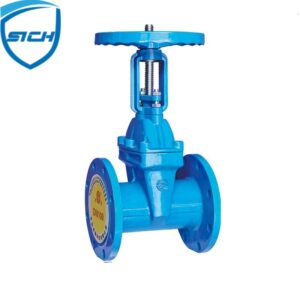Metal seal gate valves, like other types of valves, can be affected by freezing temperatures if proper precautions are not taken.
Here’s how metal seal gate valves handle freezing temperatures and what measures can be implemented to mitigate potential issues:
- Material Selection: Metal seal gate valves are typically made from materials such as cast iron, ductile iron, or stainless steel, which are generally resistant to the effects of freezing temperatures. These materials have a high tolerance for cold temperatures and are less prone to damage or failure due to freezing.
- Design Features: Metal seal gate valves are designed to withstand the mechanical forces exerted by freezing water. The robust construction and sealing mechanisms of these valves help prevent damage from ice formation and expansion within the valve body.
- Proper Installation: Proper installation of metal seal gate valves is essential to minimize the risk of freezing-related issues. Valves should be installed in a manner that allows for proper drainage to prevent water from pooling and freezing within the valve body.
- Insulation: In colder climates or environments prone to freezing temperatures, additional insulation may be applied to metal seal gate valves to protect them from the effects of freezing. Insulation materials such as foam jackets or heat tape can help maintain the temperature of the valve and prevent ice formation.
- Heat Tracing: Heat tracing systems can be installed along the exterior of metal seal gate valves to provide supplemental heat and prevent freezing. These systems use electric heating elements or circulating hot water to maintain the temperature of the valve above freezing.
- Winterization: In situations where metal seal gate valves are not in use during freezing conditions, they may be winterized to protect them from damage. This can involve draining the valve and associated piping to remove any residual water that could freeze and cause issues.
- Regular Maintenance: Regular maintenance of metal seal gate valves is important to ensure they remain in optimal condition and are less susceptible to freezing-related problems. Inspections should be conducted periodically to identify any signs of damage or wear that could compromise the valve’s integrity.
By implementing these measures, metal seal gate valves can effectively handle freezing temperatures and continue to operate reliably in cold environments. Proper installation, insulation, and maintenance are key to ensuring the longevity and performance of these valves in freezing conditions.
